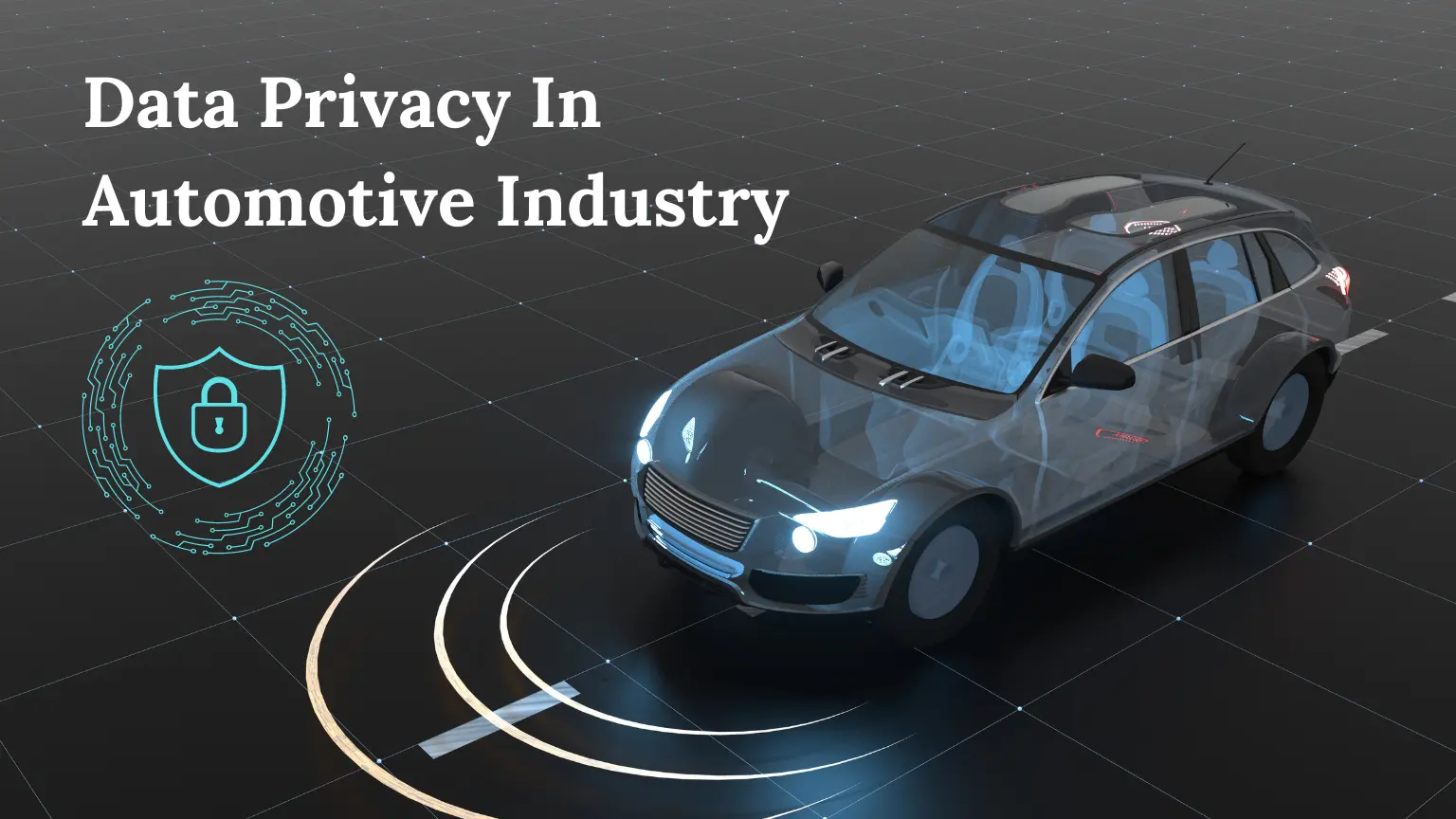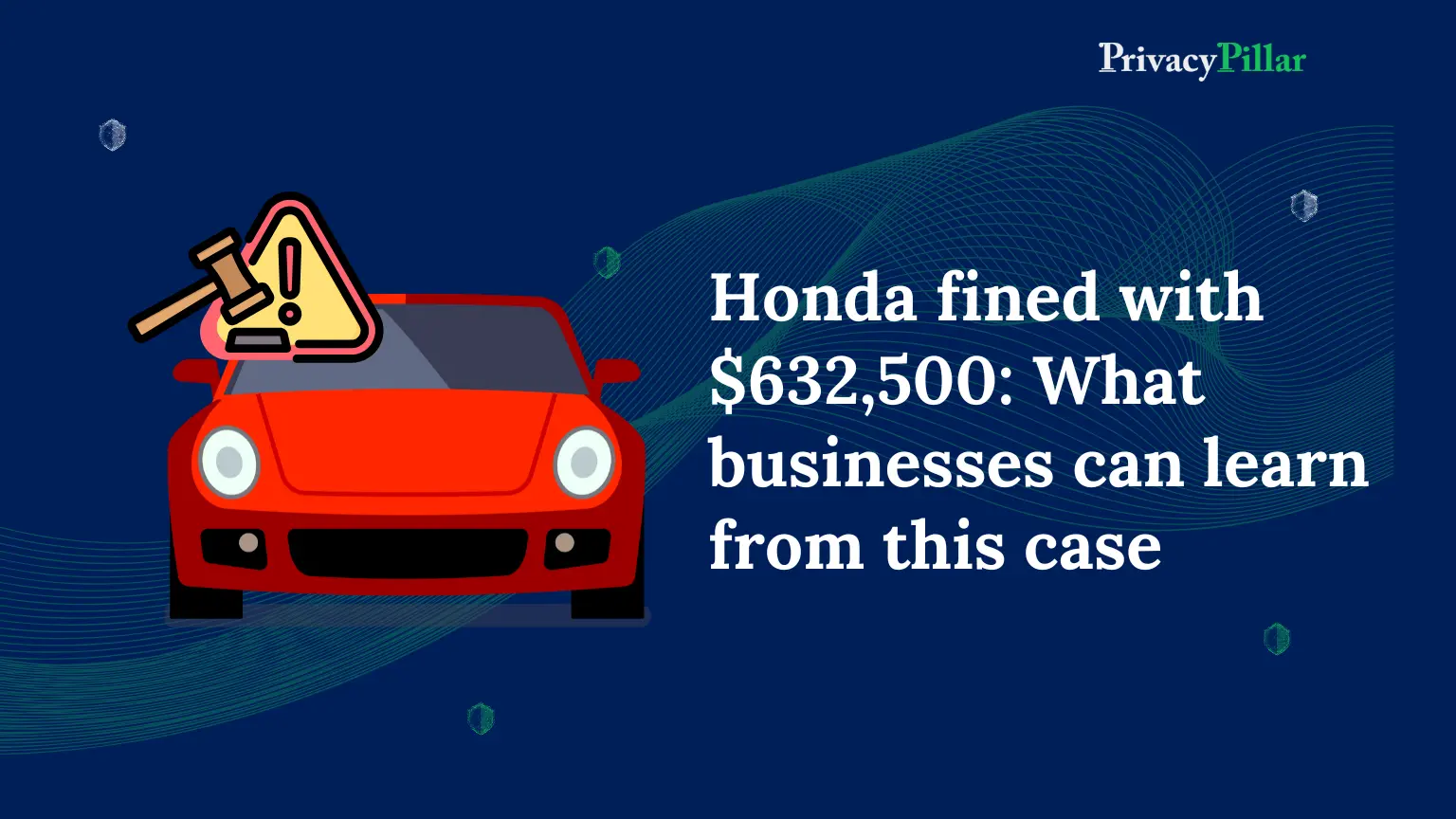
Data Protection in the Automotive Company: Ensuring Customer Trust and Compliance
Over the years, the way we handle cars has evolved tremendously, thanks to fancy new technology. Automotive companies are not just selling cars; but also collecting a lot of data to improve the buying experience and make smarter business decisions. But as they rely more on data, it’s crucial for automotive dealers to prioritize protecting it. This not only ensures customers’ trust but also keeps in line with the rules and regulations.
What data is collected in Automotive Companies?
The automotive industry collects various data about consumers and their vehicles. Here’s a breakdown in simple terms:
- Personal Information: This includes details like the name, age, gender, income, marital status, and education level. Automotive dealers use this information to understand their customers and target their marketing efforts.
- Vehicle Data: This includes vehicle information, such as make, model, year, VIN (Vehicle Identification Number), service records, and ownership history. This data is crucial for inventory management, vehicle servicing, and resale.
- Sales Records: Information related to vehicle purchases, including transaction details, financing information, and trade-in values. This data helps dealers manage their sales records and analyze sales performance.
- Customer Interaction Data: Data from customer interactions, whether through direct contact, online inquiries, or visits to the dealership. This includes feedback, preferences, and behavior during the sales process.
- Online Behavior Data: Dealers track customers’ interactions with their websites and online advertisements. This includes pages visited, links clicked, and online forms filled out. This data is used to optimize the online customer experience and improve marketing strategies.
- Credit and Financial Information: During the financing process, dealers may collect financial data, including credit scores and financial history, to facilitate loan approvals and payment plans.
Automotive dealers utilize this data to enhance various aspects of their business, from inventory and sales management to customer relationship management and marketing. However, with the collection of such comprehensive data, dealers also need to ensure they comply with data privacy regulations to protect consumer information.
Data Privacy Concerns:
Data privacy is a critical concern for the automotive industry. With the increasing reliance on data, there’s a higher chance that someone might access it without permission or use it incorrectly. Thus, dealers have to ensure strong data privacy measures to protect customer data and maintain trust.
Data Privacy’s Influence on Car Buying
A study by marketwatch has revealed that many people in the US are worried about sharing their personal data with car and insurance companies. They fear their data being stolen or used in a harmful way. This indicates that car dealers must do more to protect customers’ data. They should be transparent about how they use data and ensure they have strong measures to protect it. Taking action on these issues can help them avoid problems and make customers feel more confident in their services.
Compliances and Regulations:
California Consumer Privacy Act (CCPA)
- It grants California residents rights over their personal data, including access, deletion, opt-out from data sales, and non-discrimination for exercising these rights.
- Requires businesses to implement data protection measures, be transparent about data collection and use, and honor consumer rights requests.
- The California Privacy Protection Agency had also announced plans to investigate automakers’ compliance with CCPA requirements around data from connected vehicles.
General Data Protection Regulation (GDPR)
- While an EU regulation, GDPR applies to any company processing personal data of EU citizens, including U.S. automakers with a presence in Europe.
- Requires user consent for data collection, implementation of data protection safeguards, allowing data access/deletion, and conducting data protection impact assessments.
State Data Breach Notification Laws
- Most U.S. states have laws requiring companies to notify individuals when their personal data is compromised in a breach.
- Automakers must have incident response plans and provide timely breach notifications to affected consumers.
Additionally, auto dealers must ensure compliance with data privacy laws that restrict cross-border transfers of personal data and maintain appropriate contracts governing data sharing with third parties.
How “PrivacyPillar” Can Help:
At PrivacyPillar, we understand the importance of data protection in the automotive industry. Our Consent Management Platform and Data Subject Access Request services are designed to help automotive companies ensure compliance with regulatory requirements and protect customer data.
Our Consent Management Platform provides a centralized solution for customer consent, ensuring customers are informed and empowered to control their data.
Our DSAR service enables customers to request access to their personal data, ensuring transparency and compliance with regulatory requirements.
Conclusion
In conclusion, the automotive industry’s reliance on data has created new challenges and opportunities. To ensure customer trust and compliance with regulatory requirements, automotive companies must prioritize data protection. At PrivacyPillar, we are committed to helping automotive companies navigate the complex data privacy landscape and ensure compliance with regulatory requirements.



